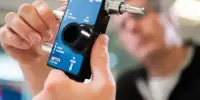According to a study conducted at the Icahn School of Medicine and published in the journal Proceedings of the National Academy of Sciences, low to intermediate-grade tumors within the prostate have been shown to be safely and successfully abated by biocompatible gold nanoparticles designed to convert near-infrared light to heat.
This therapy could provide patients with a tailored therapy alternative that would protect important prostate structures, avoiding the negative effects of whole-gland treatment like prostatectomies.
When the body’s cells start to proliferate out of control, cancer develops. Any cell in the body has the potential to develop into a cancer cell and spread to other parts of the body. When cells in the prostate gland begin to grow out of control, prostate cancer develops.
Only men have the prostate gland in their bodies. It produces a portion of the fluid that is found in semen. The second most common cancer among males in the United States to cause mortality is prostate cancer. In their lifetime, 11% of males will be given the diagnosis.
Urinary incontinence and erectile dysfunction are possible side effects of prostate removal or other whole-gland therapies. However, thanks to technology advancements, therapists now have more straightforward options for targeted therapy.
As a man matures, his prostate’s size may alter. It is roughly the size of a walnut in younger men, but it can grow to be considerably bigger in elderly guys. Adenocarcinomas make up almost all cases of prostate cancer. The gland cells give rise to these malignancies (the cells that make the prostate fluid that is added to the semen).
Mount Sinai’s interventional urology program is research-driven and offers patients minimally invasive treatment therapies that improve quality of life. Dr. Rastinehad’s gold nanoparticle research shows that patients are not only benefiting from this treatment, but also experiencing minimal side effects.
Ash Tewari
Researchers in this study examined the efficacy of AuroLase® Therapy, a medical device produced by Nanospectra Biosciences and based on technology developed at Rice University by engineer and chemist Naomi Halas, PhD, and bioengineer Jennifer West, PhD.
Ardeshir Rastinehad, DO, Associate Professor of Urology and Radiology at the Icahn School of Medicine at Mount Sinai, the study’s principal investigator and lead author, developed the technique in collaboration with Philips Healthcare to target and treat prostate cancer cells using a specially made MR US fusion guided platform.
Dr. Halas’ invention of gold-silica nanoshells (GSN), which include a silica core and a gold shell with a 150 nanometer diameter, is used in AuroLase®. AuroShells® are made to collect near-infrared energy, transform it into heat, and cause selective hyperthermic cell death without harming nearby healthy tissue.
The effectiveness of the medication has been proven in earlier cell experiments and animal models. Following treatment, some of the particles are removed by the liver while others are kept in the spleen and liver. The side effects are unknown.
GSN infusions were given to 16 males with low- to intermediate-grade prostate cancer (Gleason score of 4+3) who were between the ages of 58 and 79. Using a targeted biopsy method known as magnetic resonance-ultrasound fusion imaging, which use MRI technology to retrieve a tissue sample straight from the tumor, all were identified and treated at The Mount Sinai Hospital.
Patients underwent high-precision laser ablation, GSN infusion, and MRIs of the prostate 48–72 hours following the treatment. They also had standard biopsies at 3, 6, and 12 months, as well as MRI-targeted fusion biopsies. After several hours of observation, patients were released from the hospital the same day as the treatment.
At one year of follow-up, 87.5 percent of the lesions treated by GSN-mediated focused laser ablation were effective. Researchers wanted to determine if cancer cells could be eliminated during a biopsy.
“Gold-silica nanoshells infusion allows for a focused therapy that treats the cancer, while sparing the rest of the prostate, thus preserving a patient’s quality of life by reducing unwanted side effects, which could include erectile dysfunction and/or the leakage of urine,” said Dr. Rastinehad.
“Mount Sinai’s interventional urology program is research-driven and offers patients minimally invasive treatment therapies that improve quality of life,” said Ash Tewari, MBBS, MCh, Chair of the Department of Urology at the Mount Sinai Health System and the Kyung Hyun Kim, MD Professor of Urology at the Icahn School of Medicine at Mount Sinai. “Dr. Rastinehad’s gold nanoparticle research shows that patients are not only benefiting from this treatment, but also experiencing minimal side effects.”
















